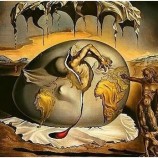Editor em «O outono brasileiro – parte 2 – A revolução política»
By Edictor:
Here the same article by Juan Arias in english
Why Brazil and why now?
By Juan Arias
The sudden crisis in Brazil has generated perplexity both inside and outside the country due to the emergence of street protests which began in the rich cities of São Paulo and Rio de Janeiro and which are now extending across the entire country, including to Brazilians living abroad.
For now, there are more questions about what is going on, which must be understood, than there are answers. So far there is only a relative consensus that Brazil, internationally envied, is going through a kind of schizophrenia or paradox that is yet to be properly analyzed and explained.
Let’s begin with some of the questions being asked:
Why is there now a movement of protests like those that have long existed in other countries around the world, when for ten years now Brazil has lived semi anesthetized by their shared success and worldwide applauses?
Is Brazil worse today than it was ten years ago? No, it is better. It’s richer at least, with fewer poor and a growing wealthy community. It is more democratic and less unequal.
How do you explain then the fact that President Dilma Rousseff with an approval rating of 75%, a persona that has exceeded the hugely popular Lula, can be repeatedly booed at the opening of the Confederations Cup in Brasilia by nearly 80,000 middle class spectators who gave themselves the luxury of paying up to $ 400 a ticket?
Why do protestors march onto the streets because of the high prices charged for public transport, if most of them are youths that do not normally use such means of transportation because they already own a car, something that was unimaginable ten years ago?
Why are students protesting if they come from families that until recently had never even dreamed of seeing their kids step foot onto a college faculty?
Why does the C middle class, who have risen out of poverty and for first time are able to buy a refrigerator, a washing machine, a TV, and even a motorcycle or a used car, support the protesters?
Why is Brazil, immensely proud of their soccer fields, now seem to be against the World Cup to the point of disrupting the inauguration of the Confederations Cup with a demonstration that incurred injuries, arrests and struck fear in the fans who went to the stadium that day?
Why these protests, sometimes violent even, in a country envied by the United States and Europe for its almost zero unemployment rate?
Why these protests in the slums, where the inhabitants have doubled their income and regained the peace that drug trafficking had stolen from them?
Why suddenly have native Indian nations risen so strongly if they own 13% of the national territory and always have the courts on the side of their claims?
Do you think maybe the Brazilians are being ungrateful to the ones who have improved their lives?
The answers to all these questions being pronounced at an alarming rate, starting with the politicians, a mixture of perplexity and amazement, could be summarized in but a few questions.
Firstly, it could be said that, paradoxically, is the fault of those who gave the poor the minimum of dignity; a not so miserable income, the possibility of having a bank account and access to monetary credit in order to acquire what has always been but a dream to them (appliances, a motorcycle, a car).
Perhaps the paradox is the following: to have put the children of the poor in schools, where their parents and grandparents were not; to have allowed this country’s youths, all of them, whites, blacks, Indians, poor or not, to enroll in a college university; to have given access to free healthcare; to have released Brazilians from the old «turn of the can mutt» complex; to have achieved everything that made Brazil a quasi first world country in the first place.
The poor, having been promoted to the new middle class soon became well aware of having taken a leap up the sphere of consumption and now want more. They want, for example, first world public services, which today are nowhere to be found; they want schools that do not just receive students, but offer quality teaching; they do not want politicized, ideologized or bureaucratic universities. They want modern, dynamic universities that will prepare them for their future careers.
They want hospitals where their dignity is left intact, without months of waiting lines, no inhumane queues, and where they are treated like human beings. They don’t want twenty-five newborns to die in fifteen days in a hospital in Belém, Pará
And they want above all what is still lacking politically: a more mature democracy, where the police do not go on acting like they’re part of a dictatorship; political parties that are not, as Lula phrased it, a «deal» to get rich; they want a democracy where there is an opposition capable of monitoring the power.
They want less corrupt politicians; they want less squandering in the construction sites which they consider downright useless when there are still eight million homeless families; they want a justice system with less impunity; they want a society that is less abysmal in its social differences; they want to see corrupt politicians put in jail.
Are they asking for the impossible? No. Unlike the movements of 1968, which aimed to change the world, Brazilians, dissatisfied with what they have achieved so far, want public services that are up to par with that of first world countries. They want a better Brazil. That’s all!
They simply want what they were to be taught to aspire for in order to be happier or less unhappy than they have been in the past.
I have heard some people say, «But what more do these people want?» The question reminds me of some families who gave everything to their children and afterward, they said, still rebel.
Sometimes parents forget that this «everything» lacked something that is essential to youths: attention, concern for what they want and not the things that are being offered. They not only need to be helped and protected, to have their hand held, but they want to learn to be protagonists.
And the young Brazilians, who have grown and become aware not only of what they already have, but what they can still achieve, are lacking precisely the opportunity to be more protagonist in their own history, especially as they reveal themselves to be immensely creative.
Yes, let them do so, but without using violence, which there is already too much of in this wonderful country that always preferred peace over war. May they not allow themselves to be fooled by politicians who would try to hitch a ride on the protest horse, to empty it of content.
Yesterday I read a poster: “País mudo é um país que não muda” meaning: a deaf country is a country that does not change. And also, directed at the police: «Do not shoot against my dreams.» Can anyone deny a youth the right to dream?
—————————–
Naiara em «Ilusão»
A poesia é linda e a imagem também.
Da poesia sabemos a autora. Faltou o crédito da imagem.
É uma pintura de Marina Jardim (marinajardim.com.br)
—————————–
Wesley em «Sem retorno»
Poesia só, não. Boa poesia.
Afinal, está valendo a pena estar em silêncio.
Assim, afino os ouvidos.
Os homens cantam, os pássaros cantam, o país acorda.
Eu, aqui da minha janela, aplaudo.
—————————–
Rozana Soares em «Ilusão»
Prezados, bom dia!
Favor informar os créditos da pintura.
«Obra da artista plástica Marina Jardim – A menina e a lua»
Att,
Rozana Soares
—————————–
ramon em «Sem retorno»
É a opinião de um amigo, mas que conhece o poeta e sabe que ele é bom.
É uma poesia profunda, tocante, verdadeira,
Envelhecer é dificil mas inevitável
Obrigado pelo presente, Antônio Ãngelo
—————————–
Diuza Pinheiro em «Ilusão»
Marina, beleza de tela !! Passa uma msg do despertar após um sonho profundo,
.agradavel e lindo..
Bela harmonia com a poesia.
—————————–
Marcos Apolnário Santana em «Sem retorno»
No verso
«cheio de manias, avesso a climas e toques.»
Um título de um livro.
Parabéns pela feliz poética;
MAS
—————————–
CARLOS LUIS em «Sem retorno»
«D»Angelo,gostei muito,especialmente deste seu olhar feminino descrevendo a dor da alma desta mulher.E são tantas hein….
—————————–
Antonio Ângelo, autor, em resposta a CARLOS LUIS
Obrigado, amigos. E que a poesia tenha sempre o seu cantinho pra se manifestar.
—————————–
Marcos Antonio em «Na Era do Rádio»
Quanta saudade! Hoje me lembro e me emociono…já se vão 31 anos desde a última vez que o escutei,em 1984, na Rádio Tupi.
Alguem saberia me dizer se existe alguma obra com as orações do Julio Louzada? Onde posso encontrar?
—————————–
Edna Ferreira de Oliveira em «Sêneca Frases VI»
Lindas e inteligentes frases. Impressionante como que naquela época antes de Cristo já existia pessoas com pensamentos tão evoluidos que nos dias de hoje, ainda nos inspiram como fonte de reflexão e estudo.
—————————–
Edna Ferreira em «Amamentar é um ato divino»
Amamentar é um ato de amor. É uma ligação muito prazerosa entre mãe e filho. Alimenta e nutre a criança, é bom para a mãe, pois ajuda ela voltar a forma do corpo natural e mais rapidamente, além de criar um vínculo maravilhoso. E não custa nada! Amamentei meu filho até quando ele quis. Não tivemos trauma algum quando chegou o momento de parar, foi tudo com muita naturalidade. Amamentar é mesmo um ato divino!
—————————–
Tatiana em «4ª Conferência Nacional de Meio Ambiente – parte 2 – Revitalização dos resíduos»
Oi Kátia,
Muito motivador o seu texto.
Que sejamos surpreendidas!
Um beijo,
Tatiana
—————————–
robert em «Os caças militares e as bóias de Alcântara»
mais vigilancia ,urgente .
—————————–
robert em «Os caças militares e as bóias de Alcântara»
mais verbas comtra espioes , e ongs ,estrangeiras , ou perdemos nossa soberania,porqe nAO TEM ONGS NO NORDESTE , SO NA AMAZONIA , TEM MUITAS , OPA, AI TEM .
—————————–
Carpegiane em «Carta recebida de José Afonso da Silva»
Show !
—————————–
Artículos relacionados














